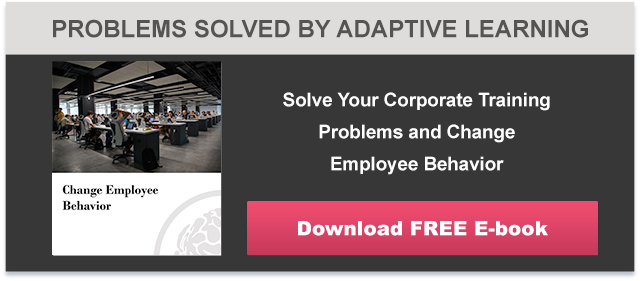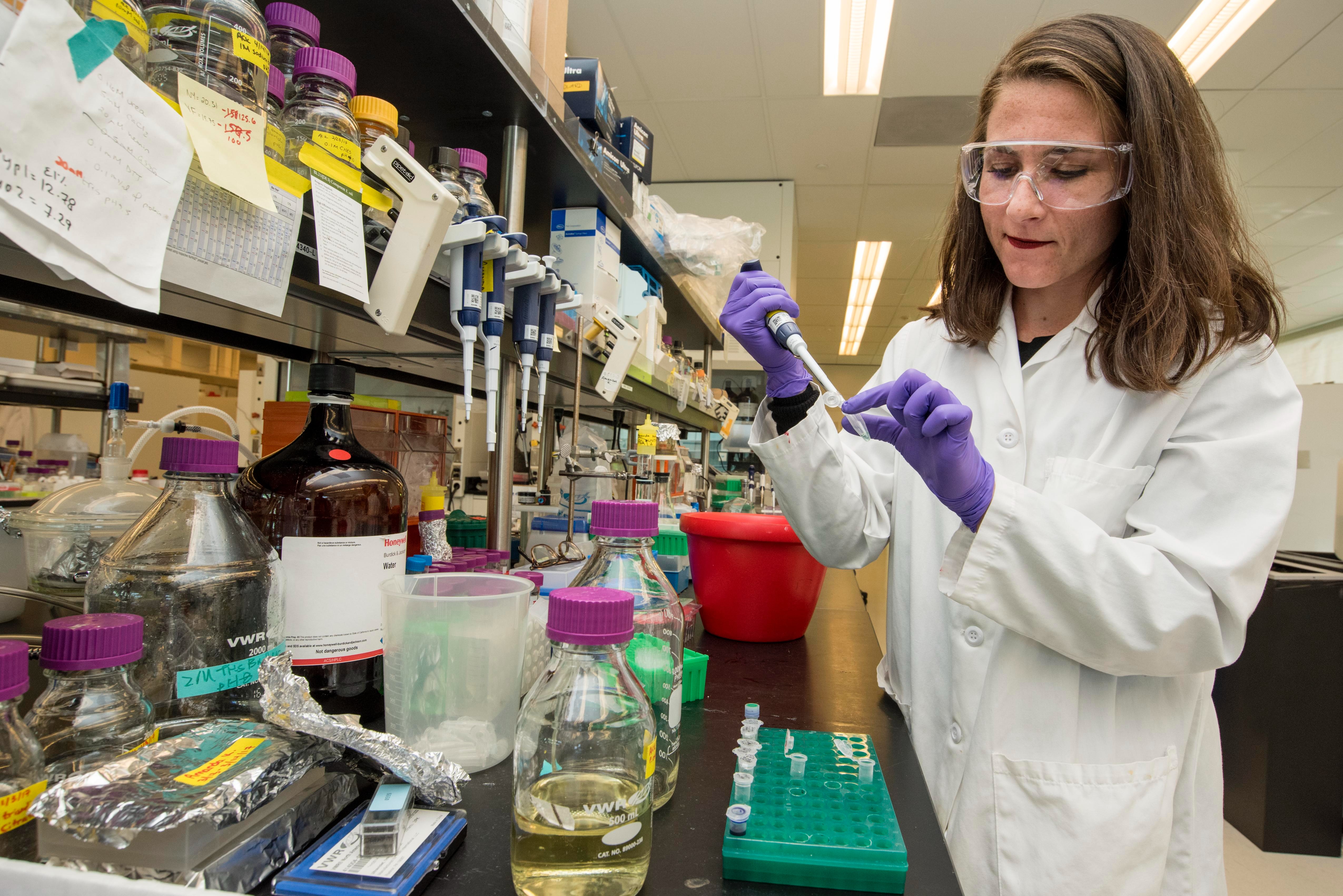Because every brain is different, Adaptive Learning changes its curriculum to meet every learner’s need. This is similar to what a recommendation engine does, but not quite the same thing.
A recommendation engine (think Google, Amazon, or Netflix) makes educated guesses about what to display, based on these factors (among others):
- a search query,
- the user’s prior search queries,
- their location, and
- the search trends of other users.
Blockquote: Instead, Adaptive Learning doesn’t guess, but knows exactly where a learner needs to focus their attention (and points it out to them).
No More Guesswork - Discover Just How Much a Learner Knows
Utilizing a biological approach to the human mind, Adaptive Learning tailors an individual learning approach to each different learner. The curriculum is not based on static, unchanging lessons (unlike traditional corporate learning), but changes depending on user interaction.
A learner answers questions about the material. Adaptive Learning then questions the learner on how confident they were with their answers. And best of all, because the software does not operate in a test format, all the anxiety and user errors that go along with a stressful testing environment are eliminated; the learner has no reason to answer falsely and is instead able to answer honestly on both their knowledge and confidence.
Because Area9’s approach is based on user responses, Adaptive Learning can appear to behave in a similar way to a recommendation engine; it recommends new knowledge the user should acquire. But unlike something like Netflix, which doesn’t know what you want to watch, and can only make very educated guesses about what you might want to watch, Adaptive Learning knows exactly what area of the course a learner is struggling with.
Adaptive Learning knows what the learner gets right, what the learner is unconfident about, and (most important) what the learner gets wrong but is very confident in.
Adaptive Learning Sets the Pace for Skills Competency
Other e-learning platforms utilize recommendation engines, but it’s not hard to see where this can cause problems. How many times has Netflix recommended a movie that you didn’t want to see? Has Amazon ever advertised a product you weren’t interested in or didn’t buy?
Sure, recommendation engines are improving, but do you really want to stake your corporate learning on a system that is still in development? Or do you want learning that intelligently detects exactly where your employees are in their learning, and then helps them improve skills competency by showing them exactly where their strengths and weaknesses lie?
Adaptive Learning eliminates guesswork and treats every learner as an individual, acting as a scalable one-on-one tutoring service for companies of any size. While sharing some similarities with a recommendation engine, Area9’s Adaptive Learning (unlike recommendation engines) predictably reduces knowledge gaps.
So if your goal is to offer employee training that removes knowledge gaps, there’s no sense in using a trendy product that doesn’t ultimately meet that goal. Instead, Adaptive Learning software gives you granular data on everything your employees know or don’t know, and simultaneously corrects that behavior.









